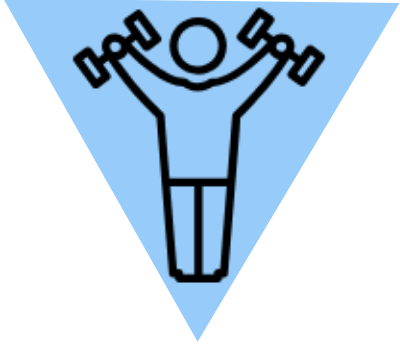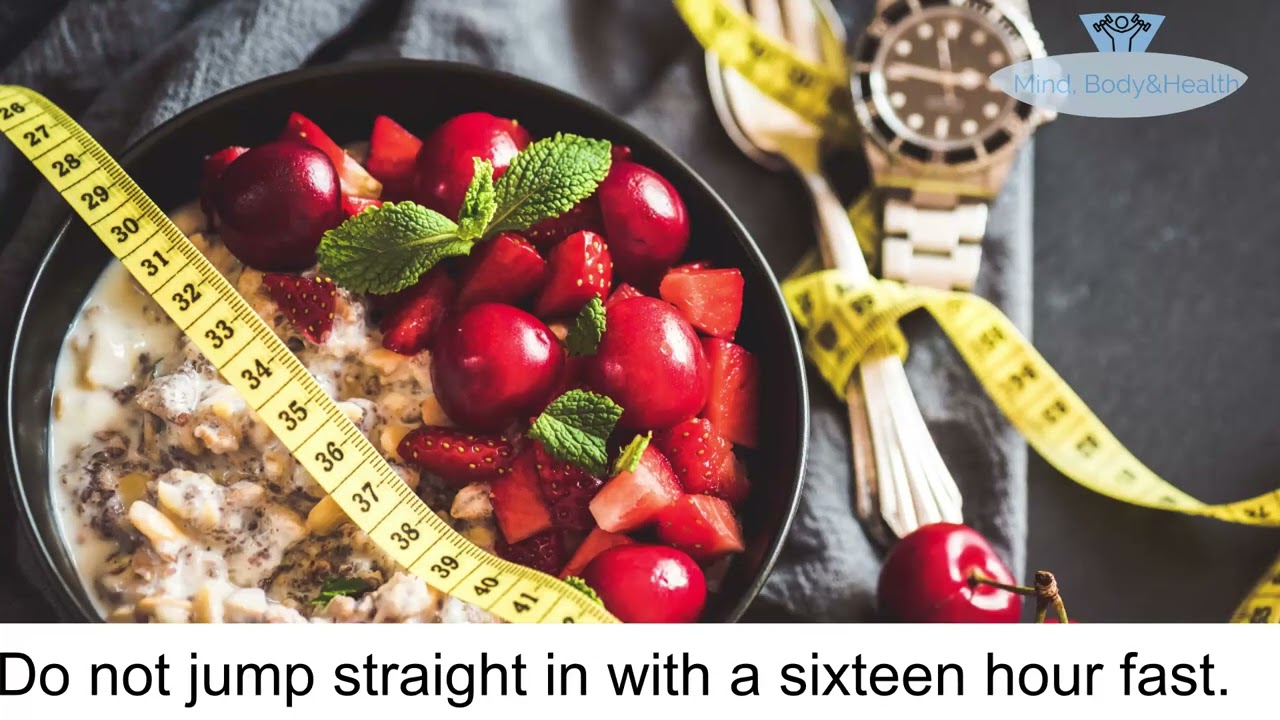Type 2 diabetes is a chronic condition that affects the way your body metabolizes sugar.
It typically develops later in life and is often associated with obesity and a sedentary lifestyle (1).
Type 2 diabetes can cause a range of serious health complications, including heart disease (2), kidney damage (3), and vision problems (4).
Unfortunately, 415 million people, equivalent to just under ten percent, have diabetes in the world.
Sadly, this can reduce life expectancy by as many as ten years (5).
Fasting And Diabetes
The good news is that type 2 diabetes can be managed, and even reversed through lifestyle changes, such as eating a healthy diet and getting regular exercise.
By making these changes, you can help to keep your blood sugar levels under control and reduce your risk of developing serious health problems.
With that said, this only applies to type 2 diabetes. Unfortunately, there is no cure for type 1 diabetes.
This is because it is not caused by lifestyle.
It is caused by the pancreas not being able to make the hormone insulin, which controls sugar levels in the blood (6).
So what is type 2 diabetes? When you eat, in a healthy person, your body breaks down food into glucose.
When glucose enters the blood stream, the pancreas releases insulin.
Insulin’s job is to get that glucose, or blood sugar, out of the blood and into the cells.
This gives the cells energy to function.
However, this is different in the case of someone with diabetes, or on the verge of developing diabetes.
If you eat too much and too often, insulin is released so frequently that the cells become resistant to it.
This means that they don’t take up the glucose.
It is important that the glucose be removed from the blood, so if the glucose isn’t taken up by the cells, insulin sends a message to store it as fat.
Unfortunately, because the cells did not take in the glucose, they still need energy to function.
So a hunger signal is sent, which causes food to be eaten, which is broken down into glucose again.
Insulin is released, the cells don’t take up the energy, and the glucose is stored as fat again.
In addition, the pancreas will also release even more insulin to try and get the cells to take up the glucose.
This cycle of insulin resistance and weight gain is what causes diabetes as well as damage to the pancreas (7).
You may be wondering if intermittent fasting is a viable option if you have diabetes.
Intermittent fasting is a centuries-old concept employed by religious organisations and communities all over the world.
In recent years, intermittent fasting has grown in favour as a tool for weight loss and improved health.
Intermittent fasting involves alternate periods of eating and fasting.
It promotes weight loss, blood sugar control, insulin sensitivity, and, as a result, diabetes management.
This was perfectly illustrated in a large study where 68 people lost 15 kg in weight and were able to stop using the medication that they were taking for diabetes, effectively reversing the disease (8).
So how does intermittent fasting help to manage diabetes?
When you fast, you are obviously not eating food, which means less insulin is released.
However, the cells still need energy, so your body is forced to burn stored glucose (glycogen).
This breaks the cycle described above, which regulates blood sugar levels and increases the insulin sensitivity of the cells (9).
There are a few different ways to approach intermittent fasting, but one common approach is to fast for 16 hours and eat all of your meals within an 8-hour window.
For example, this could mean that you would stop eating at 7 pm and not eat again until 11 am the next day.
While this may seem like a daunting task, there are many ways to make it work with your schedule and lifestyle.
And there’s no need to do it every day – you can start by fasting one or two days a week and gradually increase as you feel comfortable.
However, if you are taking medication for diabetes, it is important that before starting intermittent fasting, you speak with your doctor or diabetes nurse first to make sure it’s safe for you.
One reason for this is that when fasting, it can put the body under a type of stress called oxidative stress.
This type of stress causes chemicals called free radicals that attack and damage the pancreas.
As the pancreas is the organ that produces insulin, this can either cause diabetes or make it worse (10).
If you have diabetes and want to try intermittent fasting, it is important to start slowly.
Do not jump straight in with a sixteen hour fast.
It is probably best to start with a twelve hour fast.
You will still stop eating at 7 pm in the evening and have breakfast at around 7 am the next day.
The best bit about a twelve hour fast is that you probably won’t even notice that you are fasting, as you will be spending most of the time asleep.
When fasting, you will naturally eat fewer calories.
This may cause your blood sugar levels to drop.
This is normal and should not be a cause for concern.
However, it’s important to monitor your blood sugar levels to ensure that they do not go too low.
If they do, then adjust your medication as necessary.
Starting off intermittent fasting steadily and monitoring blood sugar levels allows your body to switch to the new way of eating, with minimum side effects (11).
Diabetics following an intermittent fasting plan should make sure they’re eating healthy, nutritious foods. Focus on high-fibre, whole grains, lean protein, healthy fats and plenty of fresh vegetables.
It is also important to drink plenty of water when you’re fasting.
This will help prevent dehydration and help your body to function properly.
During fasting periods, if you feel hungry, it can be tempting to reach for unhealthy snacks.
If at all possible, avoid having these foods in the house.
This is not always doable if you have a family member who is not diabetic or follows an intermittent fasting regimen.
As a result, it’s a good idea to prepare a strategy for dealing with temptation.
For instance, drinking a glass of water can curb hunger pangs.
Another strategy to overcome cravings is to do some exercise instead.
Oddly, cleaning your teeth can also stop you wanting to indulge in an off-plan snack.
As you can see, intermittent fasting can help to control and even reverse diabetes.
However, it is important to take it slowly and do it under the supervision of a medical professional.
References
1) Physical inactivity and obesity: links with insulin resistance and type 2 diabetes mellitus https://core.ac.uk/reader/220157080
2) Diabetes, Heart Disease, & Stroke https://www.niddk.nih.gov/health-information/diabetes/overview/preventing-problems/heart-disease-stroke
3) Diabetic Kidney Disease https://www.niddk.nih.gov/health-information/diabetes/overview/preventing-problems/diabetic-kidney-disease
4) Diabetic Eye Disease https://www.niddk.nih.gov/health-information/diabetes/overview/preventing-problems/diabetic-eye-disease
5) Diabetes Prevalence https://www.diabetes.co.uk/diabetes-prevalence.html
6) Type 1 diabetes https://www.diabetes.org.uk/diabetes-the-basics/types-of-diabetes/type-1
7) Insulin: how it works https://www.mydr.com.au/diabetes/insulin-how-it-works/
8) Primary care weight-management for type 2 diabetes:the cluster-randomised Diabetes Remission Clinical Trial (DiRECT) https://core.ac.uk/reader/196576423?utm_source=linkout
9) Flipping the Metabolic Switch: Understanding and Applying Health Benefits of Fasting https://www.ncbi.nlm.nih.gov/pmc/articles/PMC5783752/
10) Could intermittent fasting diets increase diabetes risk? https://www.sciencedaily.com/releases/2018/05/180520090903.htm
11) Fasting with diabetes https://www.diabeteseducator.org/docs/default-source/practice/educator-tools/fasting_tip_sheet.pdf?sfvrsn=2
A quick note about the articles on this site: All posts and reviews are done as honestly as possible and I make no promises to the reader that they will lose weight, improve there health and well being or will cure any problems which the post talks about. That being said I have studied the topics on my website and have personally found them to be most helpful. Should you click a link on this site that takes you to a paid product this link will be an affiliate link and I will be paid a percentage of the sales price should you decide to purchase that product.

